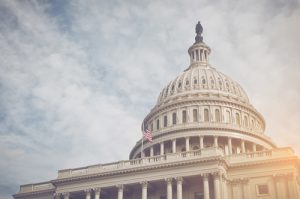
U.S. Sen. Todd Young (R-IN) recently helped lead a Republican contingent in seeking increased accountability and transparency in the federal regulatory process.
“Congress must play a role in approving major federal rules and regulations to ensure Americans’ best interests are being considered by elected officials who can be held accountable, not just unelected bureaucrats in Washington,” Sen. Young said.
The senator on Jan. 27 signed on as one of 23 original GOP cosponsors of the Regulations from the Executive in Need of Scrutiny (REINS) Act, S. 68, with bill sponsor U.S. Sen. Rand Paul (R-KY). The measure would amend the United States Code “to provide that major rules of the executive branch shall have no force or effect unless a joint resolution of approval is enacted into law,” according to the congressional record bill summary.
Among the original cosponsors who joined Sen. Young are U.S. Sens. Rob Portman (R-OH), Jerry Moran (R-KS), Mike Rounds (R-SD), Roy Blunt (R-MO), Joni Ernst (R-IA), Marsha Blackburn (R-TN), and Bill Cassidy (R-LA).
“We have made significant progress reining in costly, job-killing regulations since I first introduced the REINS Act in the House eight years ago, but as we enter a new administration, it is more important than ever that we pass this legislation,” said Sen. Young.
Most recently, Sens. Young and Paul in January 2019 introduced the same-named bill, S. 92, which gained 42 cosponsors but never advanced out of the U.S. Senate Homeland Security and Governmental Affairs Committee.
The reintroduced S. 68 would require Congress to affirmatively approve every new major rule proposed by the Executive Branch before it could be enforced on the public, according to a bill summary provided by Sen. Young’s office. Currently, regulations ultimately take effect unless Congress specifically disapproves.
S. 68 also would reiterate current federal law by defining a “major” rule as one that the Office of Management and Budget determines may result in an economic impact of $100 million or greater each year; “a major increase in costs or prices” for American consumers, government agencies, regions, or industries; or “significant adverse effects” on the economy, the summary says.
The measure again has been referred for consideration to the Senate Homeland Security and Governmental Affairs Committee.



